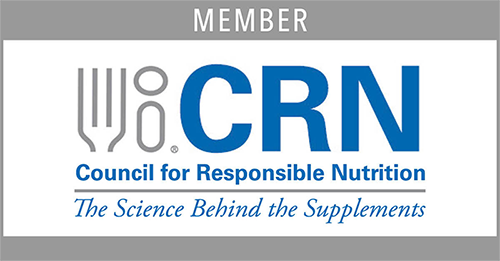What is It?*
Source Type: Water-soluble vitamin
Source(s):
- Folate – naturally found in plant and animal foods (beef liver, leafy green vegetables, legumes, whole grains, orange juice, peanuts)
- Folic acid – the synthetic form of folate that is often found in fortified foods and dietary supplements (enriched grains, fortified cereals, fortified flours)
- Chemically synthesized in labs
Folate is a water-soluble B vitamin that is part of the B-complex family. Folate is necessary for proper cell division, the production of DNA, and the formation of red blood cells. Deficiencies in folate can result in birth defects, as well as certain types of anemia. A form of folate, called folic acid, is the synthetic form and is used in fortified foods and most dietary supplements.
Benefits*
The most well-known benefit of folate and folic acid includes the reduction of neural tube birth defects. Other benefits include supporting heart health and brain health. Additionally, folate has been associated with reducing the risk of certain cancers.
Effectiveness*
Research has found that taking folic acid before becoming pregnant and during early pregnancy is highly effective for preventing neural tube defects in babies. Due to this high efficacy, in 1998 the FDA required food companies to add folic acid to enriched and other grain products sold in the United States.
Studies have found that folate naturally present in food may decrease the risk of several forms of cancer, but folate supplements might have different effects on cancer risk.
People with low levels of folate may be more likely to have depression. Folate supplements, particularly in the form of 5-MTHF, might be beneficial for making antidepressant medications more effective. However, research is still ongoing to determine whether this would help treat depression in those who have normal levels of folate.
Folate and folic acid supplements are effective in lowering levels of homocysteine in the blood, which is an amino acid that is linked to a higher risk of heart disease. However, supplements don’t directly decrease the risk of heart disease. Yet, some studies have shown that folic acid in combination with other B vitamins may help prevent strokes.
In regards to cognitive health, research is still unclear on whether folic acid supplements can improve cognitive function or prevent dementia.
Risks*
A high intake of folate or folic acid supplements can mask a deficiency in vitamin B12. This can delay the diagnosis of a vitamin B12 deficiency, leading to potentially irreversible neurological problems. Although folate found naturally in foods may decrease the risk of some cancers, a high intake of folic acid, typically from fortified foods and supplements, can actually increase the risk of some cancers, especially colon cancer and prostate cancer. Folic acid can also interact with certain medications, such as anticonvulsants and barbiturates.



